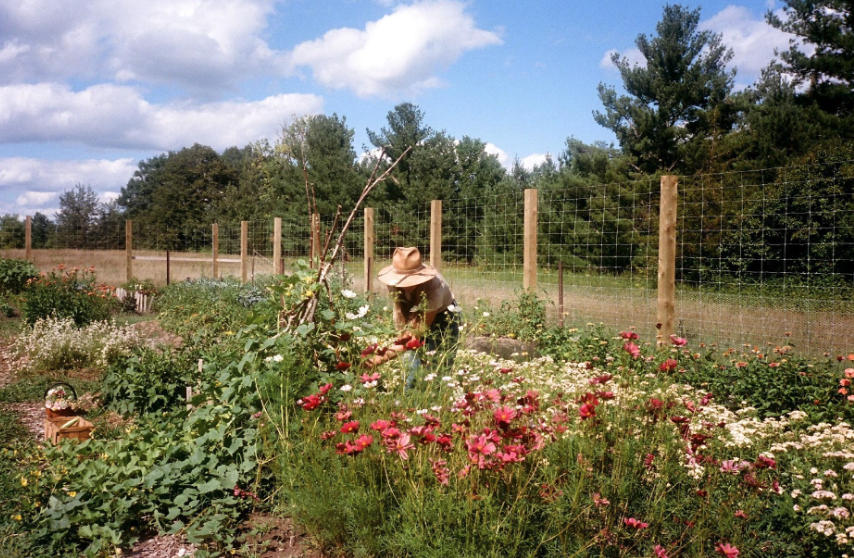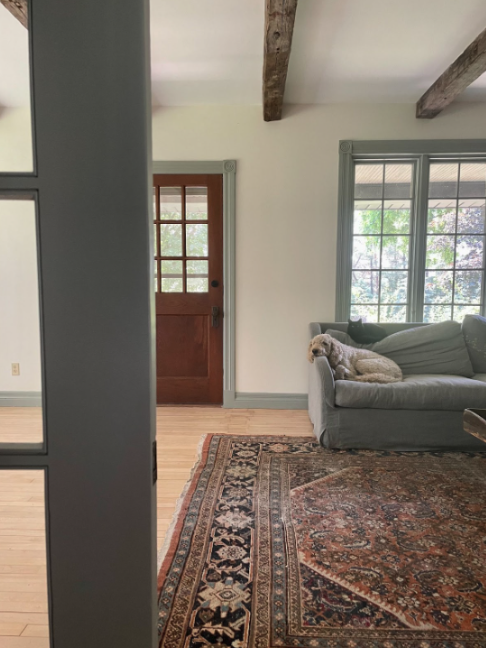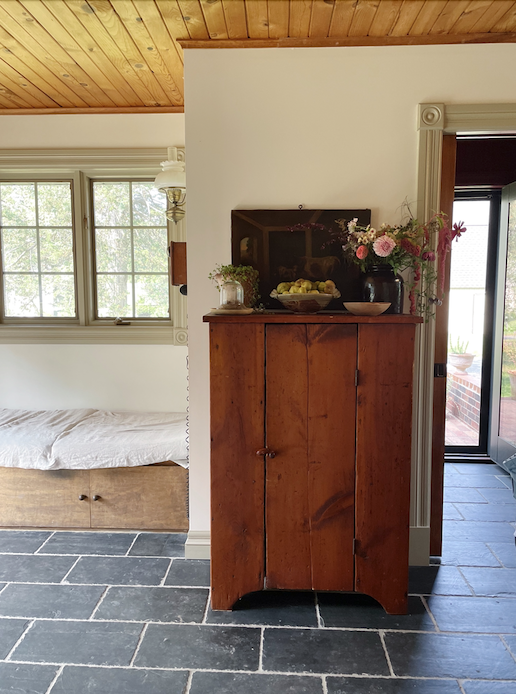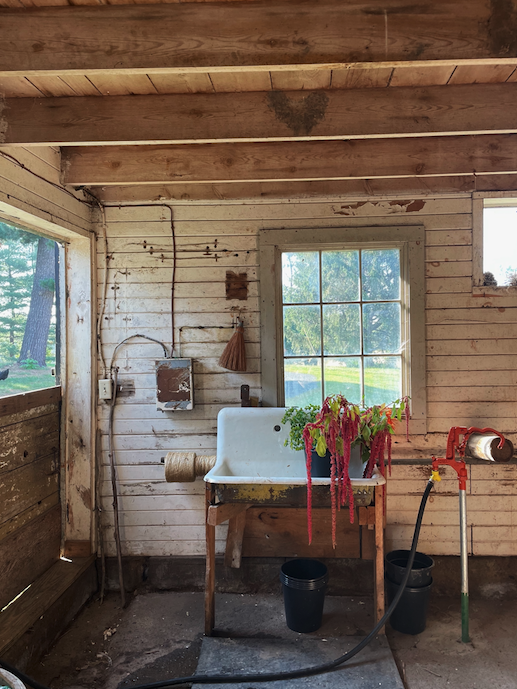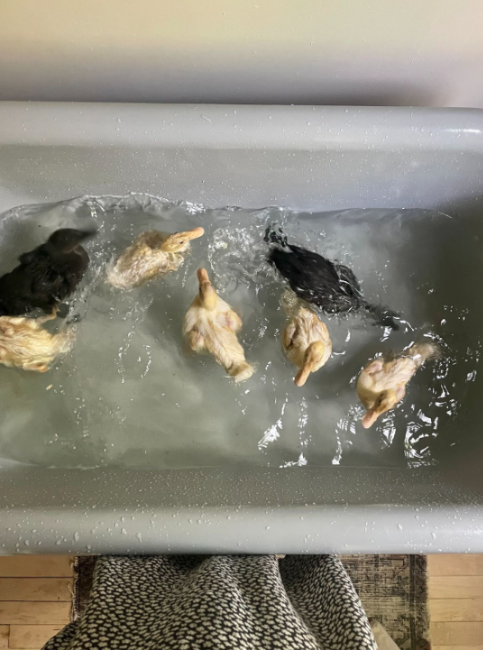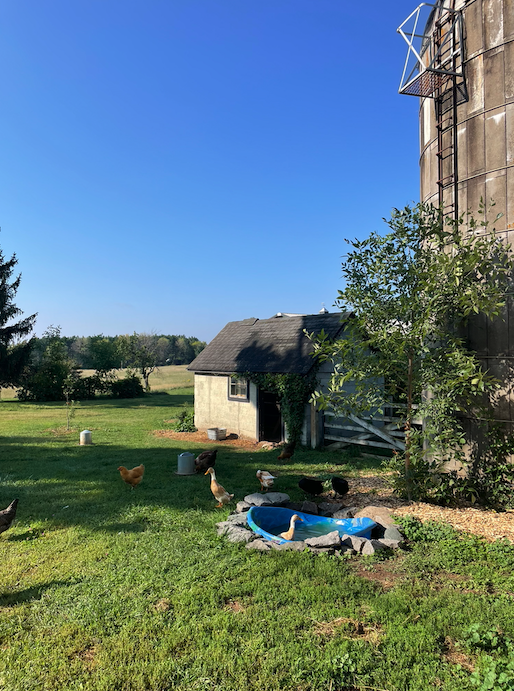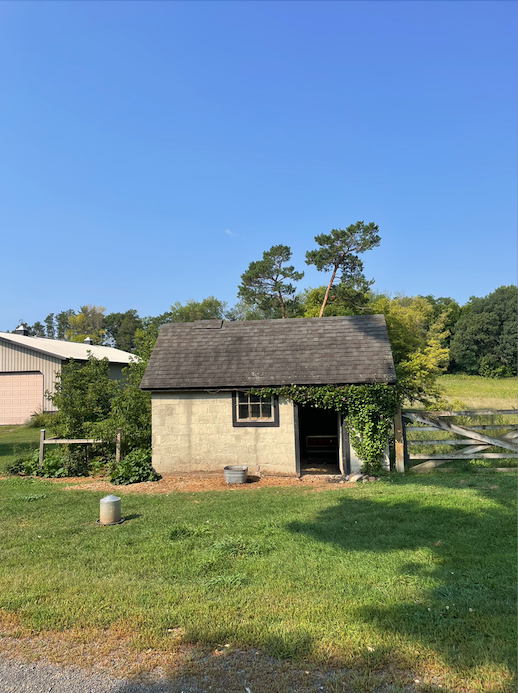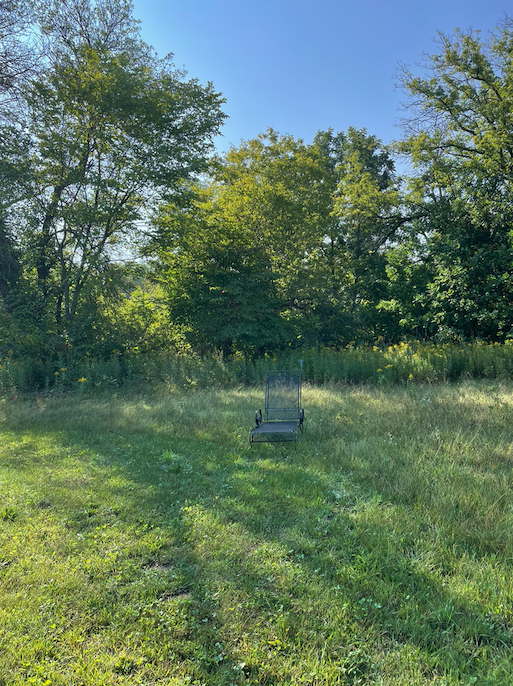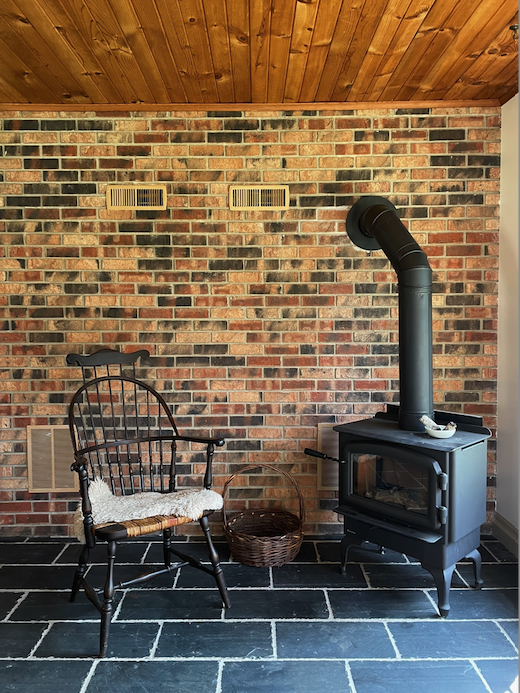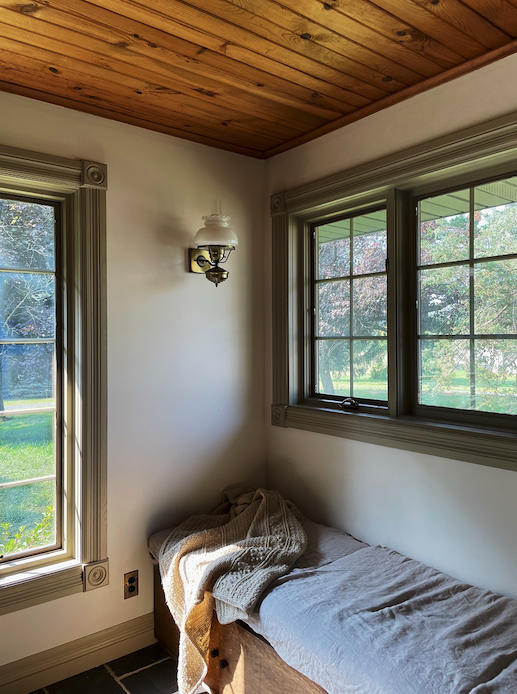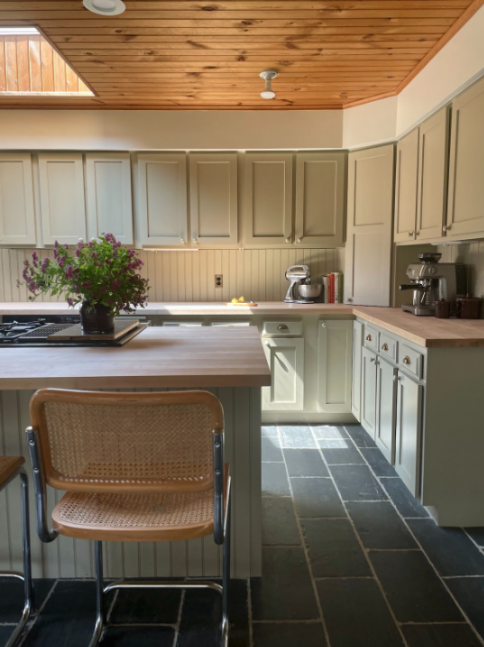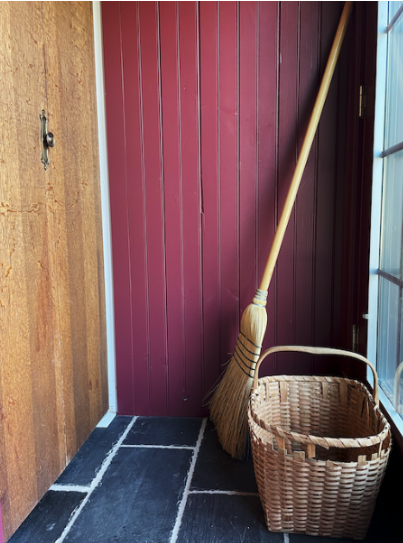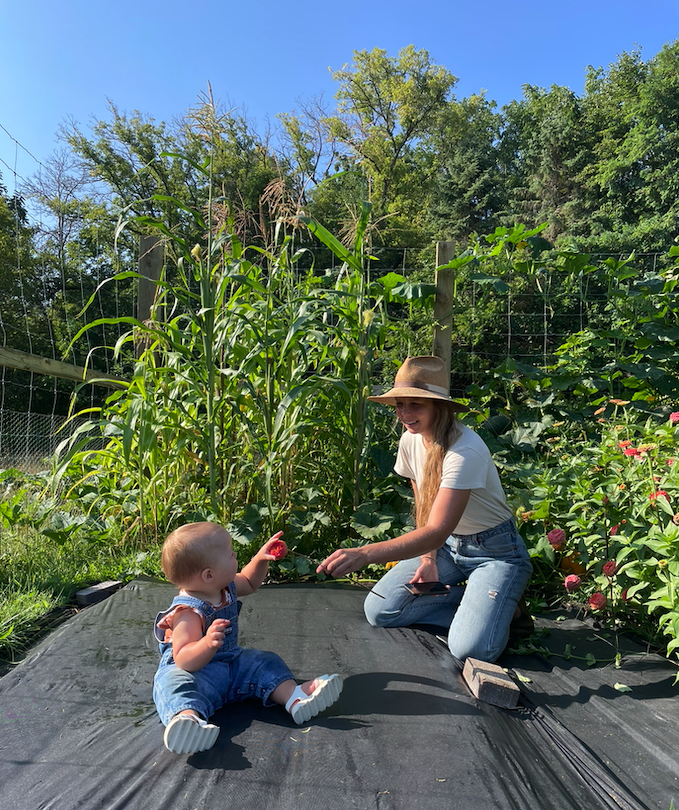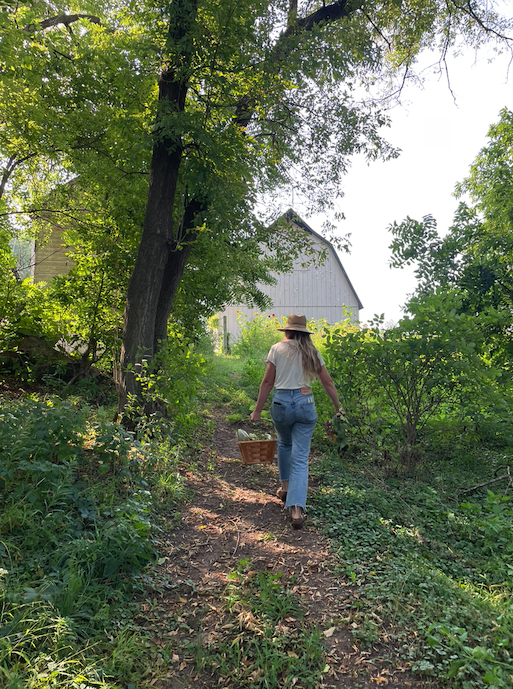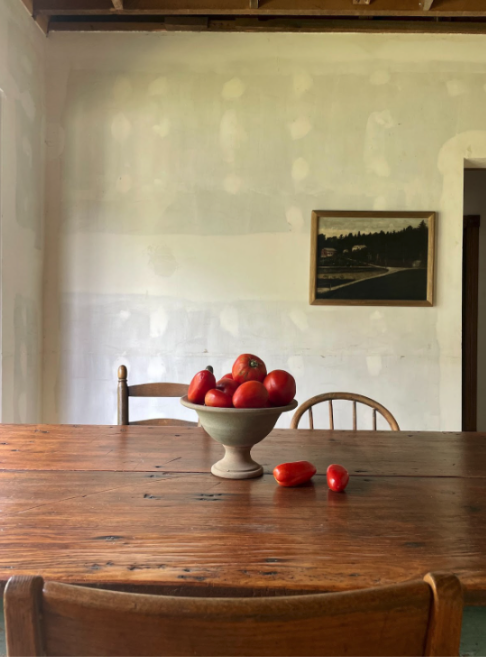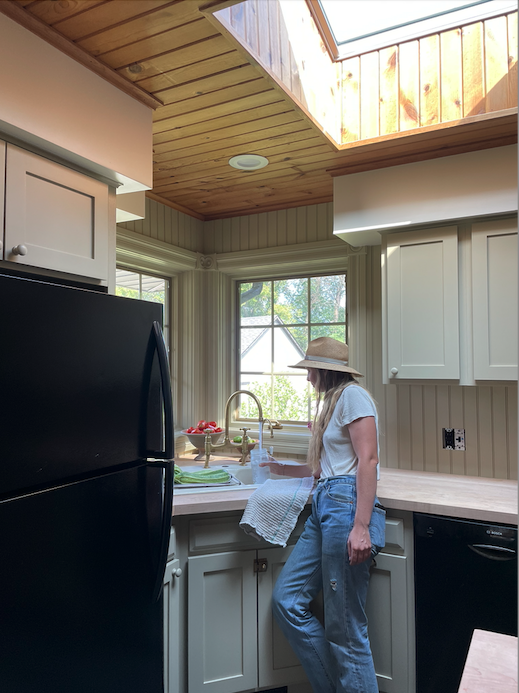Habitat No. 2: Cultivating Connection with Ellary Asche
Welcome to the second installment of our Habitat series! This series began as a way to explore what living well and practicing hospitality means to different people. We will continue to meet homemakers of varying locations and backgrounds, inviting us into their most special spaces and sharing their own definitions of home and hospitality.
Today’s conversation and home tour is very special and I am incredibly grateful for the warmth and wisdom Ellary shares with us on cultivating connection - with nature, with others, and very importantly within ourselves. She shares about her transitional past few years and how she found herself taking over a 1917 farmhouse with a rich legacy and history. I hope that as you read below, you find yourself encouraged to cultivate connection in even the smallest of ways this week. Happy reading!
Please introduce yourself!
Hi! I’m Ellary and I live on a small farm with my husband Matt and our ever growing family that currently consists of a dog, a cat, 14 chickens, and 5 ducks in Scandia, MN.
Can you give a flyover of your past 3 years?
A little over 3 years ago, we were living in the city when the pandemic hit. I somehow convinced Matt that we should sell our house and move 4 hours north to an island we had never visited before and is only accessible by boat. We lived there for 2 years and now call it our “happy place.” While living on the island, I began working on a farm and discovered a new love of gardening and the power in growing your own food. With a new job and needing to be closer to help care for Matt’s Dad with Parkinson’s, we then moved to where we are now about a year ago.
What initially prompted the transition away from city living?
When reflecting back to that time, my mental health and this deep desire to reconnect with myself was definitely the root of the transition. Through the process of working with a therapist, I found myself becoming more curious and started asking “How does this make me feel?” or “Do I really truly love ____ or is it no longer serving me?” From the clothes I wore, to my relationships, to how I spent my time, there was no limit in which I would (and still continue to) ask those questions. In turn, such healing and curiosity helped peel back some of those layers of old programming, beliefs, trauma, etc. It allowed me to reclaim what it was that I truly valued vs. what society/culture has taught us to value. By learning to go inward with this questioning, I learned to strengthen my trust muscle and give the little girl inside of me her voice back. It opened the door to a slow multitude of pings or nudges that prompted many changes and ultimately led me to where I am today.
What is something you’ve learned about yourself through this transition and intentional questioning?
I’ve learned the power of nature’s healing and how essential having a relationship to it is for my overall health. I started noticing how much better I both physically and mentally felt when I started intentionally immersing myself back into nature (deeper breathing, slowed heart rate, less racing thoughts, better sleep) and just kept coming back to it almost like an old friend, re-establishing our relationship together. Spending time outside each day has now become a non-negotiable for me no matter the season. Currently I love being barefoot when in the garden every morning and going on evening “delight” walks where I set the intention of going out to find something that brings a sense of “awe” or spark of delight such as spotting a hummingbird dancing between the sunflowers. Unfortunately, access to nature has become such a privilege in the world we are living in today and I often think about how I can share my home/space with others so they too can have a connection to nature.
Speaking of your home, can you tell us a little about its history?
Our farmhouse was built in 1917 and when I caught wind from the previous owner that there was “a wild patch of asparagus growing along the pasture's edge under the lone old tree,” I knew this was a place I wanted to call home. While I gathered various stories, there was one that continued to be repeated: The farm has always been operated and led by women (historically and stereotypically uncommon). From hosting herds of sheep, therapeutic riding horses, to a strawberry farmstand, the farm’s purpose changed from owner to owner but the legacy always continued. We often get locals who will stop by and share their own memories in connection to the farm. Just last week an older woman stopped by as she too had memories tied to the farm when she was a little girl. She shared stories about how she remembered her grandmother solely ran the farm with cows and large kitchen garden. So as it sounds, I have big shoes to fill but hope to continue that legacy.
What is your favorite aspect about living on a farm?
Being surrounded by animals and the lessons that they have and will continue to teach me - about connection, death, etc. Ever since I was a child, I have always felt a deep connection to animals (I was the little girl who brought a salamander to school for show & tell) so in a way, I feel like a little kid again. Though it’s not always easy on the farm when the inevitable happens and you lose one of your free ranging animals to predators or a crop to weather, the farm does teach you about resilience and forces you, in a way, to give up control.
What would you say to someone wanting to cultivate more space and simplicity into their lives? Maybe small habits someone could start before moving to a farm? (Although now I do, in fact, want to move to a farm...)
Oh goodness, this is something that I’m still working on a daily basis as cultivating simplicity is definitely a process. It takes time and I believe it can look different for everyone. Throughout my personal process, often the seemingly smallest changes have had the greatest impact. For example, when living in the city, I started buying more produce at the local farmer’s market. Such a change allowed me to get to know the farmers and learn more about how broken our food system is. That then sparked interest in wanting to grow my own food, so I rented a single 15’ plot at our local community garden - and the rest is history. I would encourage others to just simply start. Grow one tomato in a pot on your balcony, find new areas to walk and explore vs. the same route in your neighborhood, or plant a native plant in your yard. Start small and the rest will follow.
What changes have you made to your homes interior spaces?
The biggest changes happened in the kitchen. It was an addition to the home in the 80’s so we knew that was the space we wanted to tackle first. In wanting to honor the home's age, we stripped the kitchen back and added more historical elements such as beadboard for the kitchen backsplash and cast brass shell pulls for the drawer handles. Throughout the house, we tried to use reclaimed materials whenever possible. For the kitchen flooring, we used old slate roofing tile that came from a 1800’s St. Paul. Other changes we made included tearing down the drywall on the 1st floor ceilings and ripping up all the carpet in order to expose both the home’s aged wood beams and original maple flooring.
You have a history of sourcing and selling vintage rugs. Has this thrill of the hunt + honoring the past inspired your home? What else has served as inspiration for the design and decor?
Yes - both the thrill of the hunt and honoring the past play a big role in inspiration for my home! I would say 90% of our home is either second hand or antique. I find with antiques, the more patina the better as I love the mystery and the story it holds. Along with being better overall quality in antiques, we also prefer to buy used vs. new simply because it's one tiny way for us to reduce our footprint - a win win. I have also been finding inspiration in nature and try to reflect it back into the home as decor. For example, on our coffee table you will find a bird’s nest I found windblown out of a tree now displayed under a glass cloche.
What does hospitality mean to you + your home?
When I think of hospitality and what it means personally, I am reminded of a quote that has always stuck with me… “When you have more than you need, build a longer table not a higher fence” (author unknown). To me, hospitality looks like not only creating a safe place for my friends and family to visit but also extending it beyond the physical home and out into the community by surprising neighbors with dinner or giving the mail carrier a little bouquet of foraged flowers. Or practicing hospitality with the land by tending to and caring for it so future generations can call this place home. I feel our world could use a little more hospitality these days.
What does the transition from Summer to Fall look like for you? What rituals are you planning to bring into this next season?
In growing a lot of our food, the transition from Summer to Fall is often felt like the “last push” and can be easily consumed with harvesting/preserving and quite frankly can feel a bit blurry. I’m trying to be more intentional in honoring the shifts in seasons and what they each have to offer. This Fall, I’m welcoming in more nights by candlelight as the days start getting shorter and soups on repeat with the cooling temperatures. I’m very much looking forward to more stillness that the upcoming seasons offer.
Where can we find you and follow along with your next adventure?
For vintage and antique related things, you can find me @shophenslin on Instagram - or stop by our little farmstand for organic heirloom vegetables and flowers!

